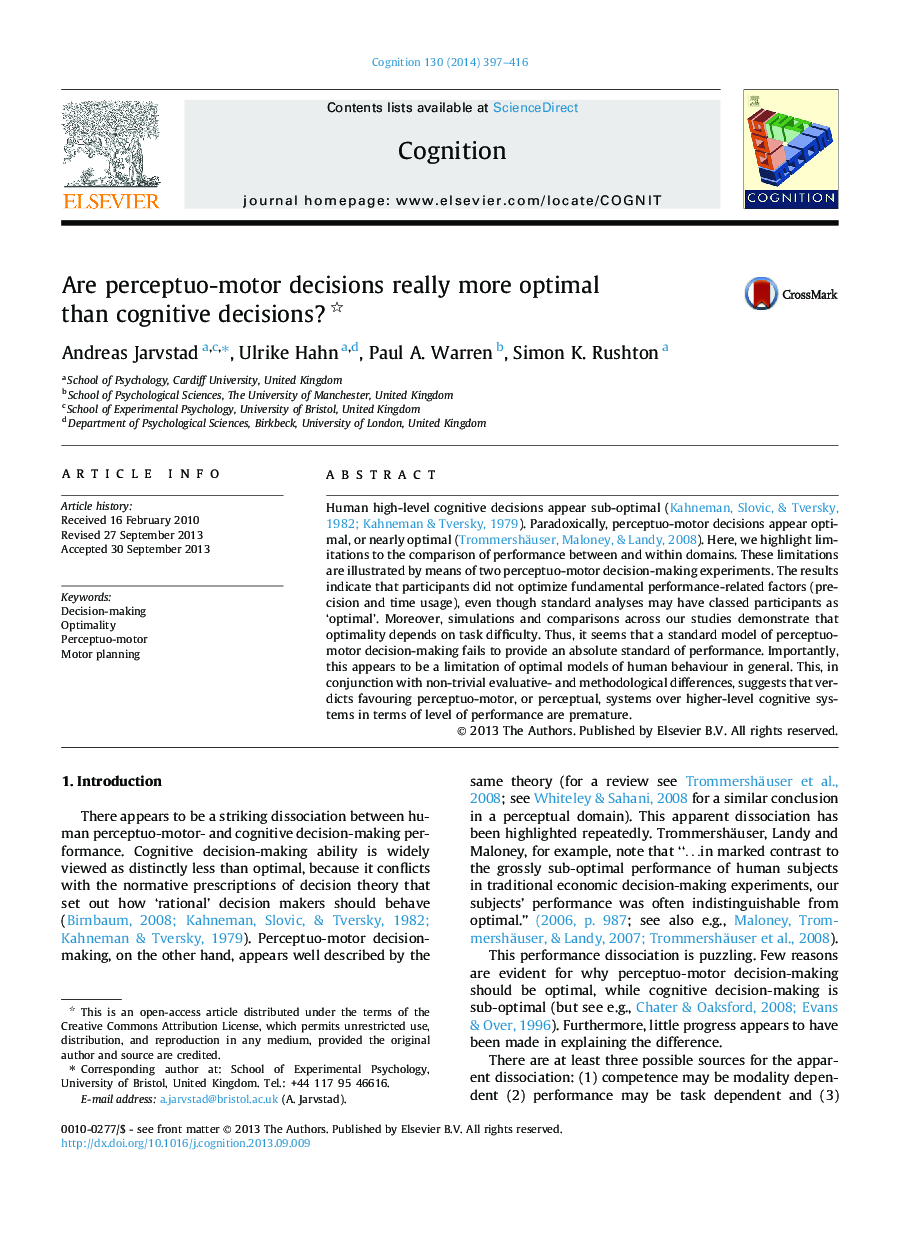| Article ID | Journal | Published Year | Pages | File Type |
|---|---|---|---|---|
| 7287701 | Cognition | 2014 | 20 Pages |
Abstract
Human high-level cognitive decisions appear sub-optimal (Kahneman and Slovic, 1982, Kahneman and Tversky, 1979). Paradoxically, perceptuo-motor decisions appear optimal, or nearly optimal (Trommershäuser, Maloney, & Landy, 2008). Here, we highlight limitations to the comparison of performance between and within domains. These limitations are illustrated by means of two perceptuo-motor decision-making experiments. The results indicate that participants did not optimize fundamental performance-related factors (precision and time usage), even though standard analyses may have classed participants as 'optimal'. Moreover, simulations and comparisons across our studies demonstrate that optimality depends on task difficulty. Thus, it seems that a standard model of perceptuo-motor decision-making fails to provide an absolute standard of performance. Importantly, this appears to be a limitation of optimal models of human behaviour in general. This, in conjunction with non-trivial evaluative- and methodological differences, suggests that verdicts favouring perceptuo-motor, or perceptual, systems over higher-level cognitive systems in terms of level of performance are premature.
Related Topics
Life Sciences
Neuroscience
Cognitive Neuroscience
Authors
Andreas Jarvstad, Ulrike Hahn, Paul A. Warren, Simon K. Rushton,
